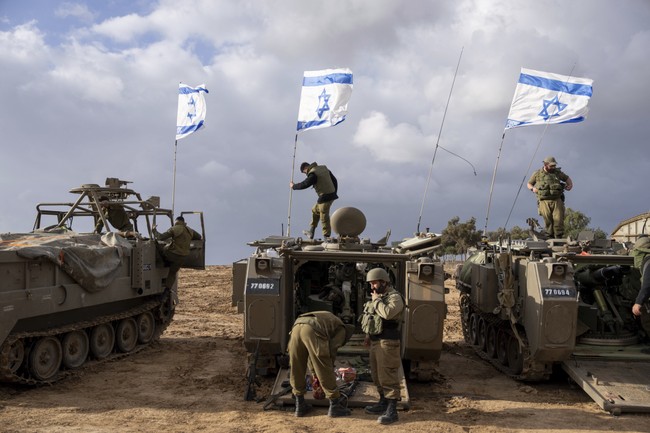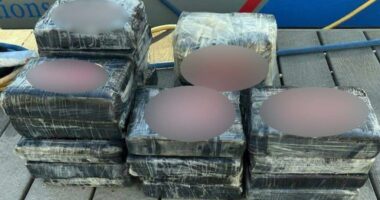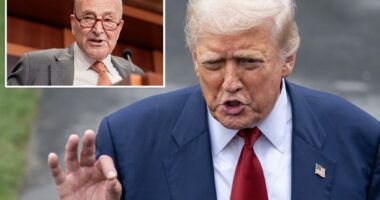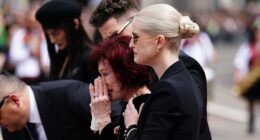
Benjamin Netanyahu and Yoav Gallant weren’t kidding around. Hezbollah launched 140 missiles at northern Israel overnight, likely their attempt to respond to Operation Grim Beeper and the 3000+ casualties from Pagercide. Israel had warned that it would escalate matters if need be.
They delivered on their promise moments ago:
Israel carried out what its military called a “targeted strike” on Beirut on Friday afternoon.
It offered no further immediate details, but explosions could be heard from the city’s southern suburbs.
Beirut-based Al-Mayadeen TV reported that a drone fired several missiles on the heavily-populated area known as Dahiyeh.
Dahiyeh is not just a “heavily populated” suburb; it’s a stronghold of Hezbollah and the seat of ifs political power. Israel hit Dahiyeh earlier this summer too, after Hezbollah thought the US would prevent a direct attack on its top leadership:
Lebanon’s Hezbollah did not clear its sensitive sites or evacuate top officials in Beirut’s suburbs before this week’s attack that killed a top commander because it thought U.S.-led diplomacy would keep Israel from striking the area, security sources close to the group and diplomats said.
Hezbollah’s impression was that Israel would not hit the southern suburbs, or Dahiyeh, a heartland of support for the Shi’ite Muslim group, as it believed Israeli forces would adhere to unofficial red lines both sides have generally observed in the conflict that has escalated during the Gaza War, they said.
The IDF warned the Lebanese yesterday that this would be the next step in the war, doing low-level supersonic flyovers and dropping flares to underscore the point. Today they decided on a direct strike to deliver a very clear message that the Israelis will not allow the strikes from Lebanon to continue.
The message, put simply: The gloves are off. The Israelis have no reason to keep Nasrallah alive if Nasrallah is part of the status quo of constant war. They got rid of Ismail Haniyeh for the same reason, a lesson which Nasrallah clearly didn’t learn.
The US tried to warn Hezbollah yesterday as well. In an unusually blunt — and unusually firm — message, the State Department revealed that they told Hezbollah that they wouldn’t intercede with Israel while missiles kept flying at their northern communities:
US State Department spokesperson Matthew Miller says that the US would urge Israel to halt strikes on Hezbollah if the terror group stopped launching attacks against the Jewish state first.
“Nasrallah could stop the terrorist attacks across Israel, and I guarantee you, if he did that, we would be impressing upon Israel the need to maintain calm on their end,” Miller says, in a somewhat uncharacteristically frank statement for a State Department spokesperson.
“The bottom line is, he hasn’t stopped those terrorist attacks, and so as long as Hezbollah is launching terrorist attacks across the border, of course, Israel is going to launch military action to defend itself as any country would,” he adds.
Besides, the reported target of this strike isn’t someone the US values much except as a fugitive:
The target of the Israeli airstrike in Lebanon’s capital Beirut a short while ago was Ibrahim Aqil, security sources tell Israeli media.
Aqil sits on the Jihad Council, Hezbollah’s top military body.
He has also been wanted by the United States for his role in the 1983 bombing of a US Marines barracks in Beirut, as well as directing the taking of American and German hostages in Lebanon in the 1980s.
Did they get Aqil? No word yet on that, but the attack made a huge impact in the literal sense:
غارة إسرائيلية على #الضاحية_الجنوبية لبيروت pic.twitter.com/xRlqmO2GxO
— هنا لبنان (@thisislebnews) September 20, 2024
The Israelis may leave Nasrallah for last, hoping that he will change his mind and corral his forces if diplomacy succeeds. Or perhaps they have other methods in mind for Nasrallah, or they will continue to target Hezbollah infrastructure until the Lebanese clean out the terrorists themselves. Either way, Nasrallah has to know his time is running short.
Update: Aqil may not have been the only target. According to the Jerusalem Post, the Israelis tried to hit a specific meeting:
Reuters reported that a thick cloud of smoke was seen climbing over the Lebanese capital, adding that residents of the city’s southern suburbs reported hearing a blast.
According to unconfirmed reports, the strike hit a meeting between Palestinian and Hezbollah officials. …
“We are in a new phase of the war and continue to pursue Hezbollah,” an Israeli official told Ynet after the strike. “We are preparing for a response. Everything is on the table.”
That’s certainly the message Israel is sending.







